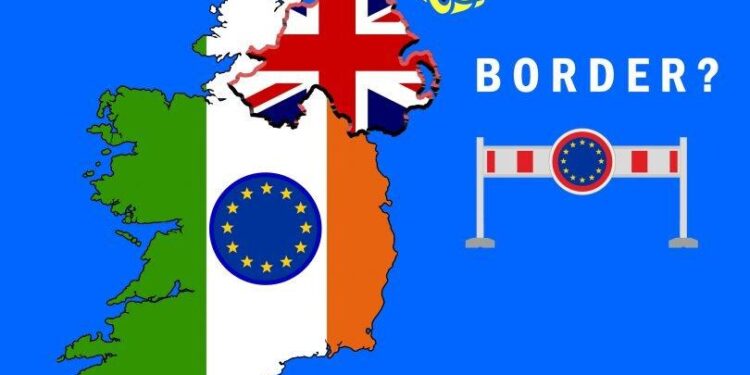The United Kingdom, the European Union, and Gibraltar have reached a crucial consensus on border protocols in the latest update to their future Agreement, officials confirmed today. The deal aims to streamline cross-border movement and reinforce regulatory cooperation, addressing longstanding challenges that have arisen since Brexit. This development marks a significant step towards stabilizing the complex relationship between the parties, with implications for trade, security, and the daily lives of those living and working in the region.
Border Control Measures Strengthened to Streamline Trade and Travel
In a concerted effort to enhance efficiency at key checkpoints, the UK, EU, and Gibraltar have finalized a series of tightened border protocols designed to facilitate smoother trade and travel flows. These measures prioritize the reduction of delays by introducing advanced electronic systems for customs declarations and health screenings, allowing for real-time data sharing between authorities. Importers and travelers will benefit from streamlined documentation processes, decreasing the administrative burden at ports of entry.
Key features of the new protocols include:
- Digital pre-clearance for goods and passengers
- Enhanced cooperation on customs inspections and risk analysis
- Standardized health and safety checks aligned across jurisdictions
- Fast-track lanes for essential goods and frequent travelers
| Measure | Expected Impact |
|---|---|
| Automated customs clearance | 50% reduction in wait times |
| Joint border inspection teams | Improved resource allocation |
| Unified health screening protocols | Consistent traveler safety standards |
Enhanced Regulatory Cooperation Aims to Reduce Delays and Boost Economic Stability
In a significant stride towards streamlining cross-border interactions, the UK, EU, and Gibraltar have committed to bolstering their regulatory frameworks, aiming to alleviate bureaucratic bottlenecks that have historically impeded trade efficiency. This newfound collaboration focuses on harmonizing customs checks and aligning inspection protocols to facilitate smoother movement of goods and services, ultimately safeguarding supply chain continuity. Authorities are implementing shared digital platforms designed to provide real-time data exchanges, which are expected to reduce administrative burdens and enhance transparency among stakeholders.
Key elements of the cooperation include:
- Mutual recognition of compliance standards to minimize duplicate inspections
- Joint task forces tasked with rapid dispute resolution and operational oversight
- Standardized electronic documentation accessible across all jurisdictions involved
| Focus Area | Expected Impact | Implementation Timeline |
|---|---|---|
| Customs Simplification | Reduce clearance times by up to 40% | Q4 2024 |
| Data Sharing Platforms | Enhance transparency and tracking | Q1 2025 |
| Joint Compliance Audits | Lower inspection redundancies | Q2 2025 |
Recommendations Emphasize Transparency and Monitoring for Long-Term Compliance
In light of the recent agreement between the UK, EU, and Gibraltar, experts underline the necessity of an open framework that fosters transparency. This approach aims to build mutual trust and ensure all parties maintain consistent adherence to agreed standards over time. Central to this framework is the establishment of clear communication channels, allowing stakeholders to access real-time data on border operations and compliance metrics. Such openness is expected to deter unilateral actions and swiftly address emerging issues.
Furthermore, continuous monitoring mechanisms are recommended to uphold long-term compliance and adapt to evolving circumstances. Key elements proposed include:
- Regular joint assessments conducted by representatives from the UK, EU, and Gibraltar
- Independent audits to verify adherence to protocol provisions
- Robust data sharing systems to track cross-border movements and customs processes
- Dispute resolution panels empowered to intervene promptly in case of compliance breaches
| Monitoring Component | Purpose |
|---|---|
| Joint Assessments | Evaluate protocol efficiency |
| Independent Audits | Ensure objective compliance checks |
| Data Sharing Systems | Maintain transparency on border flow |
| Dispute Panels | Resolve conflicts swiftly |
To Wrap It Up
As negotiations continue to shape the post-Brexit landscape, the recently agreed border protocols between the UK, EU, and Gibraltar mark a significant step forward in resolving longstanding challenges. While the details of the future agreement are still being finalized, this update signals a commitment from all parties to maintaining stability and cooperation in the region. Stakeholders and observers will be watching closely as further developments unfold, evaluating the practical impact of these arrangements on trade, travel, and diplomacy.
















